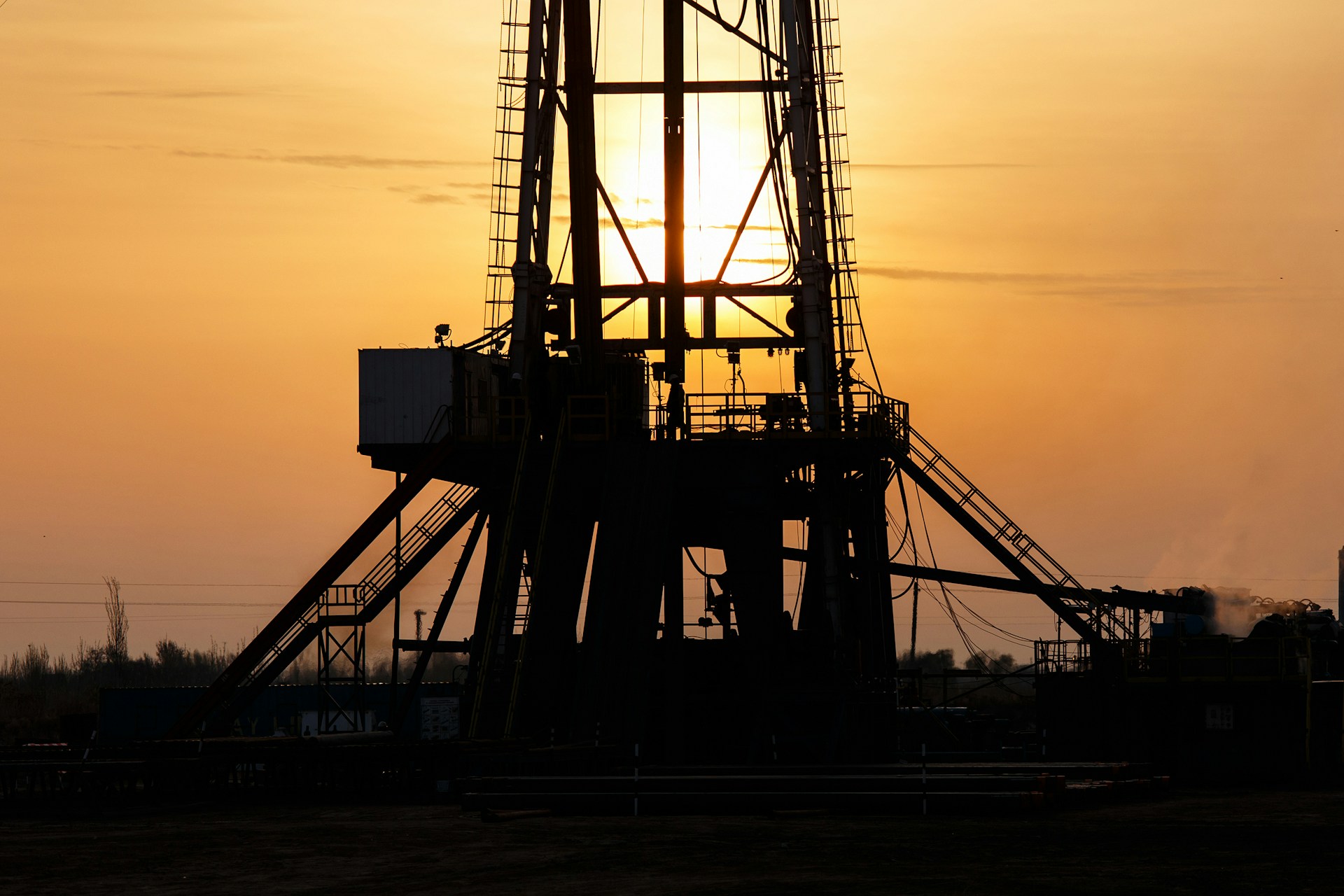
LNG Recruitment: Compete for Talent in Liquefied Natural Gas
11 Apr, 20257 Minutes
LNG recruitment is quickly becoming one of the most competitive areas in oil and gas recruitment. As global projects expand, companies are pressured to secure skilled LNG professionals before competitors do. From engineers and project managers to offshore HSE and cryogenic specialists, the demand is rising fast.
Oil and gas recruitment agencies are already struggling to meet demand, particularly in offshore recruitment and oil and gas jobs tied to LNG. As new projects come online across the US, Africa, and the Middle East, the need for a specialist oil and gas recruitment agency has never been clearer.
In this guide, we’ll break down why LNG hiring is intensifying, which roles are hardest to fill, and how oil and gas staffing solutions can help companies stay ahead.
Why LNG Hiring Is More Competitive Than Ever
LNG is expanding fast. That’s good news for the oil and gas industry, especially as liquefied gas is seen as a cleaner alternative to coal and oil. However, for hiring managers, the pace of development is already causing issues. Teams are struggling to keep up with vacancies, and without a long-term recruitment plan, hiring will become one of the main obstacles to growth.
Global demand for liquefied natural gas is expected to rise by around 60% by 2040, driven by industrial growth in Asia, AI-related energy use, and pressure to cut emissions across transport and heavy sectors. Shell’s LNG outlook puts future demand between 630 and 718 million metric tons a year—up sharply from today.
Hiring will need to move just as quickly. The market for experienced LNG engineers, operators, and project leads is already tight. Competition is growing across global markets, and salaries, relocation packages, and career pathways are pulling workers into other regions. Without a clear LNG recruitment strategy, companies risk losing out.
It’s not just about attraction. Retaining LNG workers is becoming harder too. High-paying international projects and offers from other sectors mean that even the most established oil and gas recruitment agencies are finding it difficult to meet demand. Without investment in smarter, more focused hiring, LNG expansion could stall.
LNG Recruitment: The Most In-Demand Roles and Why They’re Hard To Fill
As LNG projects scale up globally, demand is rising fast for experienced workers who understand the technical, regulatory, and logistical challenges of the sector. From engineering and HSE to operations and supply chain, companies are competing across borders for people with the right skills—and not finding them easily.
This shortage is already being felt across key project phases. Without a clear LNG recruitment strategy in place, businesses will struggle to fill essential roles in time for delivery deadlines.
Here are some of the roles currently in highest demand:
LNG Engineers
Most engineers aren’t trained to design and maintain cryogenic systems. Oil and gas staffing teams are under pressure to find people with hands-on LNG experience, particularly in liquefaction, storage, and transport. That expertise is rare, and the best candidates are already involved in long-term international projects.
Project Managers
LNG sites are vast and complex. It takes industry-specific knowledge to keep timelines and budgets on track. Some companies are hiring PMs from adjacent sectors, but this comes with a steep learning curve. Oil and gas recruitment specialists report growing demand for LNG-specific project leaders who can hit the ground running.
Quality Assurance & Quality Control (QA/QC) Specialists
QA/QC specialists are responsible for maintaining the quality and safety of LNG facilities and projects. These professionals monitor construction and production processes to ensure they meet regulatory standards. Again, QA/QC specialists can be hired from other oil and gas areas, but LNG requires knowledge of cryogenic temperatures for liquefaction and storage etc.
Health, Safety, and Environment (HSE) Officers
The risks involved in LNG are different from those in broader oil and gas. HSE specialists with LNG experience understand these nuances, and companies are now prioritising hires who have worked in LNG terminals or facilities before.
Logistics and Supply Chain Specialists
Getting LNG to the right place, at the right time, with the right documentation is no easy task. Oil and gas recruitment agencies are being asked to source talent with international experience in LNG shipping, port coordination, and export regulations.
Environmental Scientists and Engineers
Similar to HSE managers, LNG operations involve stringent compliance with environmental regulations related to air quality, water usage, and waste management, so environmental scientists must navigate complex permitting processes for LNG facilities.
All of these roles have one thing in common: They’re hard to fill quickly. Without dedicated oil and gas staffing plans and access to LNG-specific talent pools, many companies risk missing deadlines, delaying production, or taking on candidates who simply don’t have the required experience.

5 LNG Recruitment Strategies to Secure the Best Talent
To stay ahead in one of the most competitive hiring markets, LNG companies need a recruitment strategy that works. Projects are growing in size and complexity, and without long-term planning, businesses risk falling behind on critical hires. These five approaches can help shape a stronger LNG recruitment strategy built to meet current and future needs.
1. Build Long-Term Strategy Now
LNG projects have long lead times, so recruitment planning needs to start early. Companies must identify talent gaps ahead of time and establish ongoing processes to support demand as operations grow. By planning proactively, LNG recruitment can run in line with project delivery. Partnering with oil and gas recruitment agencies ensures consistent access to qualified candidates across every phase.
2. Offer Competitive Salaries and Benefits
Many LNG professionals bring specialist knowledge that takes years to develop. As demand rises, so do the offers from international projects. To compete, companies must build compensation packages that go beyond salary alone. Relocation support, career development, and retention bonuses play a key role in attracting and keeping the right people. A well-supported offer stands out in a competitive oil and gas staffing market.
3. Target Talent from Adjacent Industries
Professionals from chemicals, heavy manufacturing, and nuclear sectors may not have direct LNG experience, but many bring transferable skills. Strong safety knowledge, regulatory understanding, and technical background make them a valuable option. With the right training, these candidates can adapt quickly and help meet demand when LNG-specific talent is limited.
4. Strengthen Employer Branding
LNG is one of the cleanest-burning fossil fuels and is increasingly seen as a low-emission energy option. Companies that communicate their role in the energy transition have a better chance of engaging professionals who want more than just a job. Emphasising sustainability, innovation, and long-term project goals can give businesses an edge, particularly with younger talent.
5. Partner with a Specialist Recruiter
Working with specialist oil and gas recruitment agencies which cater to LNG professionals ensures that hiring teams aren’t just replacing vacancies but strategically building a workforce for the future. Specialist agencies will have a far bigger talent pool to leverage and are able to utilise their global network to find the right people for the right role.
What is clear from the points above is that LNG companies need to start a strategic long term LNG recruitment plan immediately that will match the growth of predicted LNG operations so that when the time comes, they will be adequately prepared for the surge in recruitment hires.
Why LNG Companies Can’t Rely on Generalist Hiring Approaches
LNG recruitment isn’t something that can be handled by a generalist agency. The work is too technical, the requirements too specific, and the demand too high. As the industry scales, companies need to know that every hire has the right experience, the right certifications, and the ability to work across complex, often international, environments. That’s not something a broad recruiter can guarantee.
Specialist oil and gas recruitment agencies work in this space every day. They already know where to find qualified LNG professionals, and they understand what different projects actually need. That includes engineering roles with cryogenic experience, operations leads with safety expertise, and technical staff who’ve worked on comparable infrastructure.
Unlike generalists, LNG recruiters can move faster and stay accurate. They also handle far more than just sourcing. With the right support, LNG companies can benefit from:
- Access to experienced candidates with LNG-specific skills
- Active global networks of pre-vetted professionals
- Support across compliance, screening, onboarding, and relocation
- Flexible delivery models for both contract and permanent roles
This kind of specialist support helps reduce delays, cut admin load, and improve accuracy. It also means companies can scale quickly when project demand changes.
In short, LNG businesses need a partner that understands their world. Generalist agencies don’t have the network, sector knowledge, or speed to deliver what’s needed.
If hiring is going to keep pace with project growth, recruitment needs to be just as specialised.
Why LNG Companies Need a Stronger Hiring Strategy: Final Thoughts
LNG demand is rising across every region, but recruitment still isn’t moving fast enough. As more projects move from planning to construction, the shortage of qualified professionals is becoming harder to ignore. Teams are already stretched, and delays caused by hiring gaps are starting to cost time and money.
Without a clear plan for LNG recruitment, companies will find themselves reacting to problems instead of preparing for growth. Unfilled roles lead to delivery risks, missed milestones, and increased staff turnover as workers are pulled into better-paying international projects. As more companies enter the space, competition will only increase.
The industry is scaling quickly, and the hiring approach needs to match it. Now is the time to invest in smarter recruitment—before the market tightens further.
Speak to Orion about your LNG hiring needs
Whether you're building a new team or expanding existing operations, Orion can support every stage of your recruitment strategy. We’ve helped LNG companies across the US, Africa, and the Middle East secure engineers, project leads, compliance experts, and offshore specialists.
We understand the unique challenges of oil and gas recruitment, from international mobility to project-based hiring models. Our team works across both permanent and contract roles and can provide tailored solutions to help you move faster, reduce hiring risks, and compete more effectively in a global market.
Looking for offshore jobs or planning ahead for your next project? Speak to Orion’s LNG recruitment specialists today.


